2018 Speakers
Nita Rudra, Georgetown University
“Democracies in Peril: Taxation and Redistribution in the Global Economy”
Friday, February 02, 2018
Title: Democracies in Peril: Taxation and Redistribution in the Global Economy
Authors: Ida Bastiaens (Fordham University) and Nita Rudra (Georgetown University)
Abstract: Globalization is triggering a ‘revenue shock’ in developing economies. International trade taxes—once the primary source of government revenue in developing economies—have been drastically cut in response to trade liberalization. In this book, we make the novel argument that regime type is a major determinant of revenue-raising capacity after free trade policies have been adopted. Specifically, we find that policymakers in democracies confront far greater challenges than their authoritarian counterparts implementing domestic tax reforms to offset revenue shocks from liberalization. The repercussions are significant; while the poor bear the brunt of this revenue shortfall in democracies, authoritarian regimes are better-off overall. They use their improved fiscal situation to maintain their hold on power, either by investing in public goods, or further enriching a small elite. Somewhat paradoxically, then, citizens of democracies in the developing world suffer precisely because their freer political culture constrains the government’s ability to tax and redistribute under the auspices of globalization. In essence, this book is about an unfolding confrontation in the globalizing world; a battle between open societies and the ability of governments and their people to prosper—a fight that, in the current circumstances, is difficult for either to win.
About the speaker: Nita Rudra is an Associate Professor of Government at Georgetown University. Her research interests include the distributional impacts of globalization as they are mediated by politics and institutions. Her work appears in the British Journal of Political Science, Journal of Politics, American Journal of Political Science, and Comparative Political Studies, International Organization and International Studies Quarterly. She has a book with Cambridge University Press entitled: Globalization and the Race to the Bottom Paradox in Developing Countries: Who Really Gets Hurt? She recently completed a one-year fellowship awarded by the Fulbright-Nehru Foundation at the Indian Institute of Management, Bangalore India. She has also been a recipient of the International Affairs Fellowship from the Council on Foreign Relations, which placed her at the World Bank for one year.
Co-Sponsored by the Department of Political Science
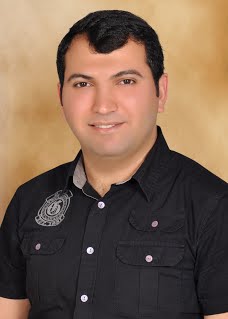
Islam Rizvanoghlu
“Local Contents versus Fiscal Policy in Extractive Industries”
Friday, February 09, 2018
About the Speaker: Islam Rizvanoghlu is an experienced economist with research and teaching interests in energy economics, energy finance and macroeconomics. He is specializing in macroeconomic effects of oil price shocks, optimal resource extraction models and modeling the commodity price volatility. His works have been published in Empirical Economics and Energy Economics journals. He has been teaching macroeconomics, corporate finance and energy economics both at undergraduate and graduate levels. He worked at the Center for Financial and Economic Research in Russia as an economist and also conducted research at the Baker Institute Center for Energy Studies as a graduate fellow. Dr. Rizvanoghlu holds Bachelor's degree in Political Science and International Relations from Bogazici University, Master's degree in Economics from Central European University and PhD in Economics from Rice University.
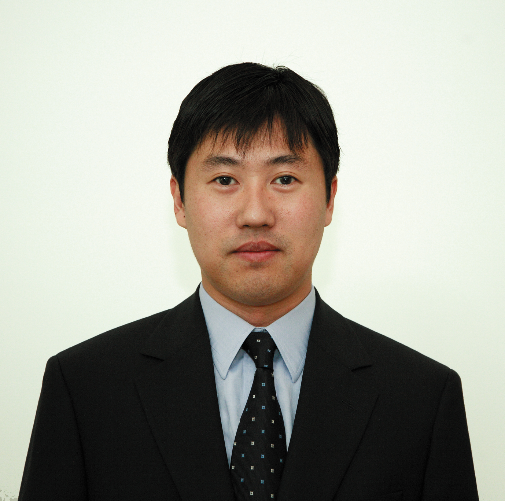
Shuichiro Nishioka
"FDI, Import Competition, and U.S. Presidential Elections: The Case of Japan Bashing"
Thursday, March 8, 2018
Abstract: During the 1980s, trade with Japan became a U.S. political issue. "Japan Bashing", in which destruction of Japanese products tool place in public, was widespread but eventually faded in the 1990s. We utilize a unique U.S. county-level Japanese FDI dataset and examine the impacts FDI and import competition had on the share of votes won by the respective Republican and Democratic presidential candidates. Our results from the 1976-1992 period suggest that counties that hosted FDI were more likely to vote for the Republican candidate and those counties whose industries were Japanese competitors were more likely to support the Democratic candidate.

Juan Pablo Micozzi
District Magnitude and Women's Representation Evidence from Two Natural Experiments in Argentina
Friday, April 13
About the speaker: Juan Pablo Micozzi, is an Associate Professor in Political Science, Instituto Tecnológico Autónomo de México. He received his Ph.D. in Political Science from Rice University. Professor Micozzi’s is an expert in comparative politics, with primary focus in Latin American countries. His research agenda is centered on the areas of legislative politics, representation, and federalism. His work has been published in the Journal of Politics, Comparative Political Studies, Legislative Studies Quarterly, and Journal of Theoretical Politics, among others.
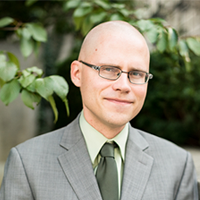
Johannes Urpelainen
"Renewables: The Politics of a Global Energy Transition"
Thursday, April 26
Wind and solar are the most dynamic components of the global power sector. How did
this happen? After the 1973 oil crisis, the limitations of an energy system based
on fossil fuels created an urgent need to experiment with alternatives, and some pioneering
governments reaped political gains by investing heavily in alternative energy such
as wind or solar power. Public policy enabled growth over time, and economies of scale
brought down costs dramatically. Urpelainen and Aklin’s book offers a comprehensive
political analysis of the rapid growth in renewable wind and solar power, mapping
an energy transition through theory, case studies and political analysis.
About the speaker: Johannes Urpelainen is the Prince Sultan bin Abdulaziz Professor of Energy, Resources and Environment at Johns Hopkins SAIS and the Founding Director of the Initiative for Sustainable Energy Policy (ISEP). He received his Ph.D. in Political Science from the University of Michigan in 2009 and spent the next eight years at Columbia University. Johannes is the award-winning author of four books and over a hundred refereed articles on environmental politics, energy policy, and global governance. At SAIS, he teaches action-oriented classes on energy and environmental policy to equip the next generation of global leaders with deep knowledge, advanced analytical skills — and a passion for transformational social change. One of the world’s top energy policy experts, Johannes frequently advises governments, international organizations, and the private sector on energy and environment. As the Founding Director of ISEP, Johannes is responsible for the vision, strategy, and general management of the initiative. His work under ISEP offers pragmatic but effective approaches to providing the world’s population with affordable and abundant energy at minimal environmental impact.
Co-sponsored with UH Energy
"Political Economy of Conflict and Cooperation" Conference
June 1-2
Classroom and Business Building (CBB), Room 104
The presentations and discussion will cover a range of topics in international affairs, including the causes and consequences of international and internal conflict; domestic and international determinants of political risk; and the roles of both institutions and leaders in global affairs. Here is a link to the conference schedule and papers: https://bit.ly/2GUAEgC
The lineup of participants includes: Jonas Bunte (University of Texas, Dallas), Terry Chapman (University of Texas, Austin), Tyson Chatagnier (University of Houston), William Clark (Texas A&M University), Mark Crescenzi (University of North Carolina, Chapel Hill), Tanya Bagashka (University of Houston), Ben Fordham (Binghampton University), Matthew Fuhrmann (Texas A&M University), Erik Gartzke (University of California, San Diego), Nathan Jensen (University of Texas, Austin), Hyeran Jo (Texas A&M University), Ryan Kennedy (University of Houston), Katja Kleinberg (Binghampton University), Ulkar Imamverdiyeva (University of Houston), Edward Mansfield (University of Pennsylvania), Patrick McDonald (University of Texas, Austin), Nikolay Marinov (University of Houston), Pablo M. Pinto (University of Houston), Emily Sellars (Texas A&M University), Gerald Schneider (University of Konstantz), Patrick Shea (University of Houston), Cameron Thies (Arizona State University), Rachel Wellhausen (University of Texas, Austin), and Sunny Wong (University of Houston).
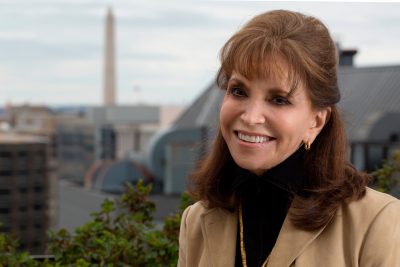
Cynthia Huger
"Unleashing the Economic Power of Women"
Wednesday, September 26| 2-3:30 PM
UH Student Center - Downtown Room 261
Vice President for Administration and Finance and CFO Cynthia Huger speaks about the Millennium Challenge Corporation’s (MCC) work to promote economic development and women’s economic empowerment. MCC is an innovative and independent U.S. foreign aid agency that is helping lead the fight against global poverty.
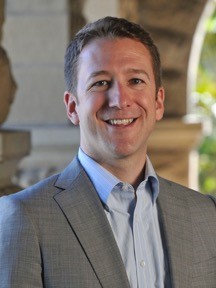
Daniel Smith
"Dynasties and Democracy"
Friday, October 19 | 10:30 AM - 12 PM
117 McElhinney
Abstract: Political dynasties exist in all democracies, but have been conspicuously prevalent in Japan, where over a third of legislators and two-thirds of cabinet ministers come from families with a history in parliament. In his new book, Dynasties and Democracy: The Inherited Incumbency Advantage in Japan, Daniel M. Smith introduces a comparative theory to explain the persistence of dynastic politics in democracies like Japan, and explores the implications of this theory for candidate selection, election, and cabinet promotion, as well as the impact of dynasties on the quality of representation.
About the Speaker: Daniel M. Smith is an associate professor of comparative politics in the Department of Government at Harvard University. His research focuses on the impact of political institutions, especially electoral systems and candidate selection processes, on aspects of democratic representation and behavior. He is the author of Dynasties and Democracy: The Inherited Incumbency Advantage in Japan (2018), coeditor of Japan Decides 2017: The Japanese General Election (2018), and has published research articles in several journals, including the American Political Science Review, Journal of Politics, Political Analysis, and Comparative Political Studies.
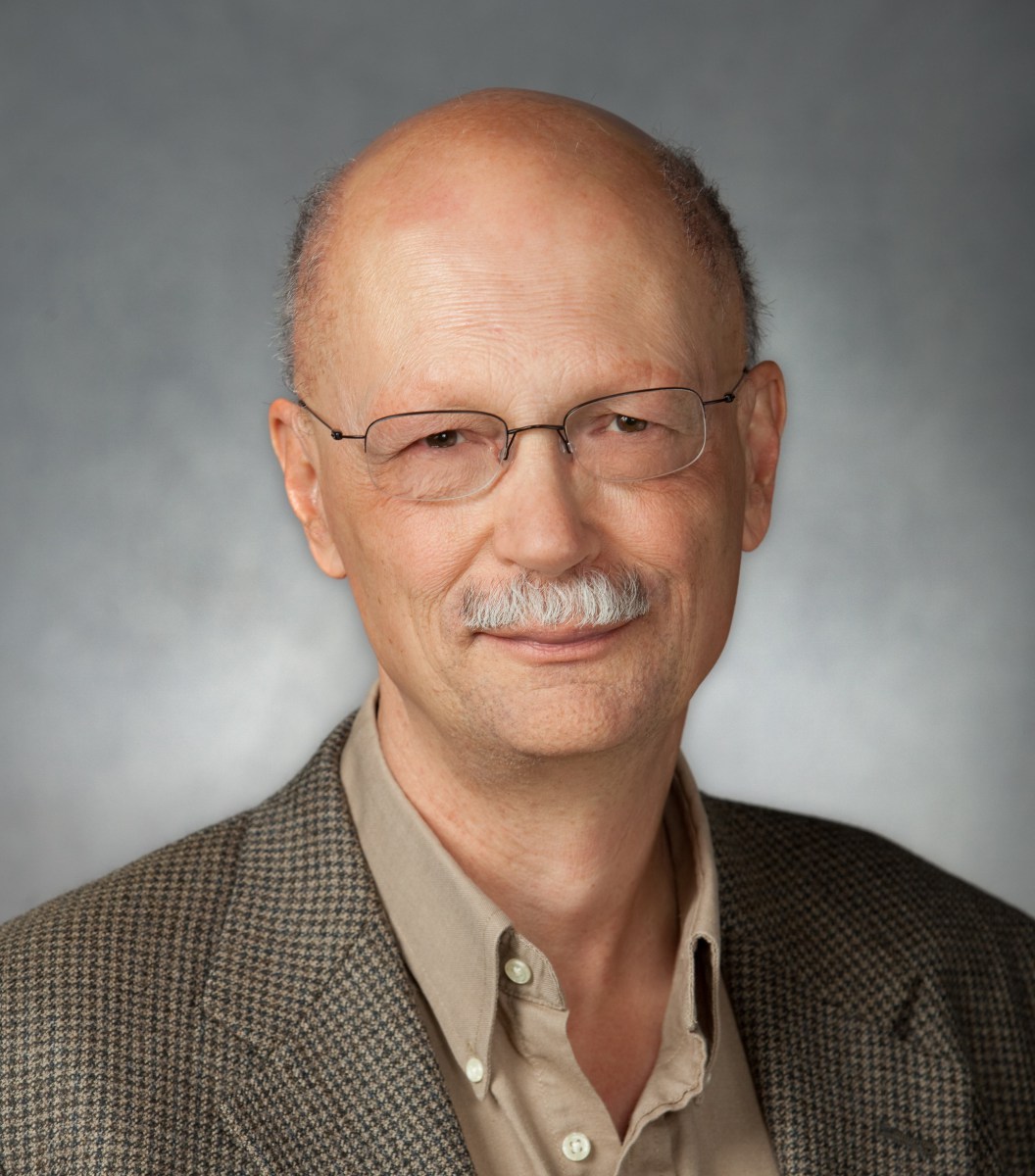
David A. Lake, University of California, San Diego
"Legitimate Power: Rule and Resistance in the American Imperium"
October 31 | 2:00 - 3:30 PM
Student Center South Room 261 Downtown
Abstract: When is international hierarchy legitimate? More specifically, when is rule by one state over another state regarded by the members of the subordinate society as rightful and appropriate? U.S. rule has varied by region and over time being largely illegitimate in the Caribbean basin in the early 20th century, mostly legitimate in Europe and Northeast Asia after 1945, and broadly illegitimate in the contemporary Middle East. The question of when, how, and why international hierarchies are legitimate takes on new urgency with the current crisis of the liberal international order created by the United States after World War II. In this book-in-progress, I argue that an imperium is legitimate when it is perceived by subordinates as improving life conditions relative to feasible alternatives and the superordinate commits credibly not to abuse the authority conferred upon it.
About the Speaker: David A. Lake is the Jerri-Ann and Gary E. Jacobs Professor of Social Sciences and
Distinguished Professor of Political Science at the University of California, San
Diego. Lake has published widely in international relations theory, international
political economy, and security studies. His most recent book is "The Statebuilder’s
Dilemma: Legitimacy, Loyalty, and the Limits of External Intervention" (Cornell 2016).
In addition to over 100 scholarly articles and chapters, he is the author of numerous books and has also co-edited 12 volumes on a variety of topics in international political economy, security studies, and international organizations. Lake served as President of the American Political Science Association and the International Studies Association, co-editor of the journal International Organization, founding chair of the International Political Economy Society, and Program Co-Chair of the Annual Meeting of the American Political Science Association.
At UCSD, Lake has served as Research Director for International Relations at the Institute on Global Conflict and Cooperation, chair of the Political Science Department, Associate and Acting Dean of Social Sciences, and Director of the Yankelovich Center for Social Science Research. Lake received the UCSD Chancellor’s Associates Awards for Excellence in Graduate Education (2005) and Excellence in Research in Humanities and Social Sciences (2013). He was elected to the American Academy of Arts and Sciences in 2006.
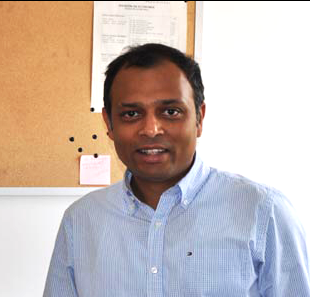
Kaniska Dam, Center for Research and Teaching in Economics, Mexico City
"A Price Theory of Vertical and Lateral Integration Under Two-Sided Productivity Heterogeneity"
November 15 | 3:30 - 5:00 PM
315 McElhinney
About the Speaker: Kaniska Dam is Associate Professor of economics at the Center for Research and Teaching in Economics (CIDE), Mexico City. He received his doctoral degree in economics from the Autonomous University of Barcelona (UAB), Spain, and holds Master degree in Quantitative Economics from the Indian Statistical Institute, India. Prior to joining CIDE, he has been Marie Curie postdoctoral fellow at the Center for Operations Research and Econometrics (CORE), Belgium. CIDE, he has been Marie Curie postdoctoral fellow at the Center for Operations Research and Econometrics (CORE), Belgium.
Kaniska’s main research interests include contract theory, industrial organization, and banking. He has contributed to the aforementioned topics by publishing in journals like Frontiers of Theoretical Economics, Economica, Economics Letters, Journal of Institutional and Theoretical Economics, and The Quarterly Review of Economics and Finance. He currently serves as co-editor of Latin American Economic Review. At CIDE, he teaches Contract theory, Mathematics, and International trade.
Co-Sponsored: The Department of Economics
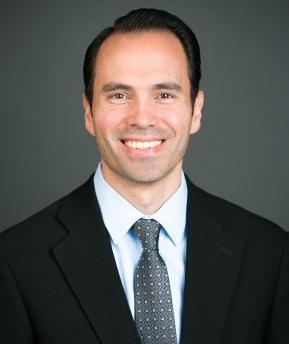
Paul Lagunes, Columbia University
"Guardians of Accountability: A Field Experiment on Corruption & Inefficiency in Local Public Works"
November 30 | 10:30am - 12pm
315 McElhinney
About the speaker: Paul Lagunes, Ph.D., is the 2018 Board of Advisors Visiting Fellow at the Baker Institute. He is also an assistant professor at Columbia University’s School of International and Public Affairs. His research on the political economy of development examines the issue of corruption, especially as it affects subnational governments in the Americas. His work has been published in PLoS ONE, Latin American Research Review, Political Psychology, among others. He is also the co-editor (with Susan Rose-Ackerman) of “Greed, Corruption and the Modern State: Essays in Political Economy.” Lagunes is currently working on a book manuscript that examines approaches to promoting accountability based on analysis of the implementation of Mexico’s Freedom of Information Act, and on the results of three field experiments on corruption control.
